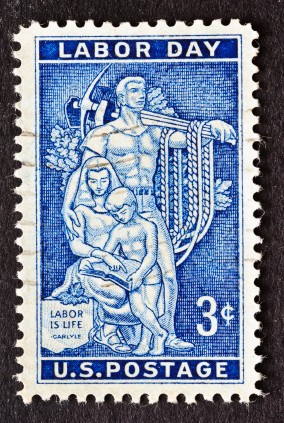-
 Read more
Read moreWhen we promised yesterday that we would have more on the Lilly Ledbetter Fair Pay Act of 2009 later this week, we hadn’t realized that Ms. Ledbetter would be speaking to the Democratic National Convention about it last night. As Ms. Ledbetter reminded the crowd last night, the law named after her was the first bill that President Obama signed into law.
In a nutshell, the Ledbetter Act was Congress’s response to the U.S. Supreme Court’s holding in Ledbetter v. Goodyear Tire & Rubber Co., Inc., that Ms. Ledbetter, a nearly 20-year employee of Goodyear, did not timely file an EEOC charge against Goodyear alleging that, in violation of Title VII, Goodyear paid her less because of her gender.
-
Read more
On Friday, the Texas Supreme Court dismissed a suit brought by Dr. Diljit K. Chatha, a professor at Prairie View A&M University, against the University (there was a dissenting opinion).
Dr. Chatha, who is of Indian national origin, claimed that she was paid less than other professors because of her race and nationality. The Texas Supreme Court found that Dr. Chatha’s claims were “jurisdictionally barred” because she did not file a complaint under the Texas Commission on Human Rights Act (TCHRA) within 180 days of the University promoting her to full professor in 2004, which was when Dr. Chatha was informed of the University’s allegedly discriminatory pay decision. Instead, Dr. Chatha filed the complaint about two years later.
-
Read more
The pre-Labor Day highlights of Suits by Suits:
- A producer of Martin Scorcese’s next film, The Wolf of Wall Street, filed a lawsuit against the production company for reducing her role. The New York Post reports that Alexandra Milchan alleges that she was owed $700,000 in fixed payments and the right to produce the film. The article includes a photo of Leo DiCaprio wearing … you guessed it … a suit.
-
 Read more
Read moreOK, that’s an old joke. But Labor Day is about more than back-to-school sales and beaches. This is a short post looking back at the history of Labor Day.
But wait, you say: isn’t this a blog about disputes between high-level employees and their companies, often where there’s an employment contract at issue? Yes, absolutely it is. That’s the bullseye of our focus. Look broadly at that target, though, and what you see is friction: friction in the relationship between an employer and its employees. We are most intrigued when the friction involves a senior executive and a company. We are also intrigued when disputes arise because an employer asked a job applicant about his religious beliefs or required him to disclose his Facebook password in order to apply, or a company fired an employee shortly after learning that she was pregnant, or a company claims that a former sales agent violated the non-compete provision in her contract by selling a competitor’s products in the company’s territory – even when that job applicant or employee is not at the C-level. That’s because the same laws against discrimination apply to all of us, and courts apply the same principles of contract interpretation regardless of whether the employment contract is between a CEO and a Fortune 500 company, or a first-year sales associate and a family-owned business.
This weekend, the labor movement – involving employers, employees, and, ultimately, complicated and regulated contracts – is drawing our attention. So, enough about why we’re writing about Labor Day: let’s get to it.
-
Read more
Many of the cases we talk about here on Suits by Suits are breach of contract cases brought by executives against their former employers. Sometimes, however, the employer turns the tables, bringing an action against a former executive for breaching its confidences. When that happens, the executive can find himself owing the company a lot of money, rather than the other way around.
Such was the fate of a former lawyer for Toyota named Dimitrios Biller, the subject of the Ninth Circuit’s recent opinion in Biller v. Toyota Motor Corp., 668 F.3d 655 (9th Cir. 2012).
-
Read more
We previously covered former Yahoo! CEO Scott Thompson, who may have cost himself $10 million by inflating his credentials in a resume. Resume problems are not a one-off in the world of Suits by Suits.
One way in which untruths on resumes can come to light is through a defense called the after-acquired evidence doctrine, which employers can assert in response to wrongful termination or discrimination claims.
-
Read more
It feels like most of Suits by Suits' home city of Washington has gone on vacation this week. Perhaps, then, it's no coincidence that news about employee travel expenses has filled the Inbox.
We start this trip with news of a four-star Army general, William "Kip" Ward -- who until recently commanded the Army's operations in Africa -- facing demotion for unauthorized and extravagant travel. Maybe he should have followed Hannibal's lead and gone by elephant -- or George Washington's example of travel by rowboat.
At the same time, some Republican lawmakers are questioning Attorney General Eric Holder's use of FBI planes for what they claim is personal and inapproriate travel.
Also, here's an interesting article in the New York Times, noting that top candidates for some jobs are negotiating for exemptions from company travel policies as part of their employment agreements. No Motel 6 for these folks.
-
Read more
For the second time during this quiet week in late August, pregnancy is in the headlines.
The first time, of course, involved Rep. Todd Akin, a candidate for the U.S. Senate from Missouri who claimed – and then swiftly retracted – that women who are “legitimately raped” don’t get pregnant. That’s led pregnancy – and abortion politics – to dominate news coverage.
But here’s another story with pregnancy at its core: this week, a federal judge in Manhattan ruled that a former buyer for fashion house Gucci can move forward with her case alleging that the luxury-goods company fired her after she became pregnant.
-
Read more
I need to start off with a confession: my name is Bill and I’m an insurance lawyer. (“Welcome, Bill”). I’m going to be writing about insurance as it applies to employment-related disputes. Even though you may think insurance is a very dry subject, I promise to make it as interesting as I can – although there will be no dancing green lizards in any of these posts. And, if you work for (or defend) a company that can face suits by employees, you may find these posts very helpful when it comes to protecting your corporate bottom line from those suits.
Many of the other folks who write on this blog are able to tell great tales of high-profile fights between executives and their companies. Those are important stories and they are at the core of what this blog is about. My perspective on employment disputes is somewhat different: I look at whether a company’s insurance policies can provide the company with a defense against an action brought by an employee (or reimbursement for fees and costs when a company defends itself), and whether those policies will cover a judgment or settlement of the case. It can be a little esoteric at times, and I spend a lot of time thinking about the meaning of individual words in an insurance policy.
-
Read more
A hullabaloo. A brouhaha. Even, perhaps, a ruckus, if you will.
Those words describe what’s been happening with the Metropolitan Washington Airports Authority (MWAA) board – the entity that oversees our two main airports in this region, Washington-Dulles and National (formally “Ronald Reagan National,” but National to us Washingtonians who have lived in the area more than ten years). The airports themselves are running fairly well.
The problem is with another thing the MWAA board is overseeing – construction of the Silver Line, a $6.8 billion, 29-mile extension of the Washington subway out to the Washington-Dulles airport. The Silver Line has been a fierce battleground for all of the parties involved – Virginia, Maryland, and the District of Columbia (which partly finance the project through their funding of the subway system), taxpayers along the route of the line (who add more money), and the U.S. Department of Transportation (which contributes the largest share). Those parties, and others, fight nearly continuously on all sorts of issues – from whether the last station should be in the Dulles terminal or outside of it, through the composition of the labor force building it, and where it should go. And, of course, their respective shares of the cost of the project.
As the regulatory and business environments in which our clients operate grow increasingly complex, we identify and offer perspectives on significant legal developments affecting businesses, organizations, and individuals. Each post aims to address timely issues and trends by evaluating impactful decisions, sharing observations of key enforcement changes, or distilling best practices drawn from experience. InsightZS also features personal interest pieces about the impact of our legal work in our communities and about associate life at Zuckerman Spaeder.
Information provided on InsightZS should not be considered legal advice and expressed views are those of the authors alone. Readers should seek specific legal guidance before acting in any particular circumstance.
Contributing Editors

John J. Connolly
Partner
Email | +1 410.949.1149

Andrew N. Goldfarb
Partner
Email | +1 202.778.1822

Sara Alpert Lawson
Partner
Email | +1 410.949.1181

Nicholas M. DiCarlo
Associate
Email | +1 202.778.1835




